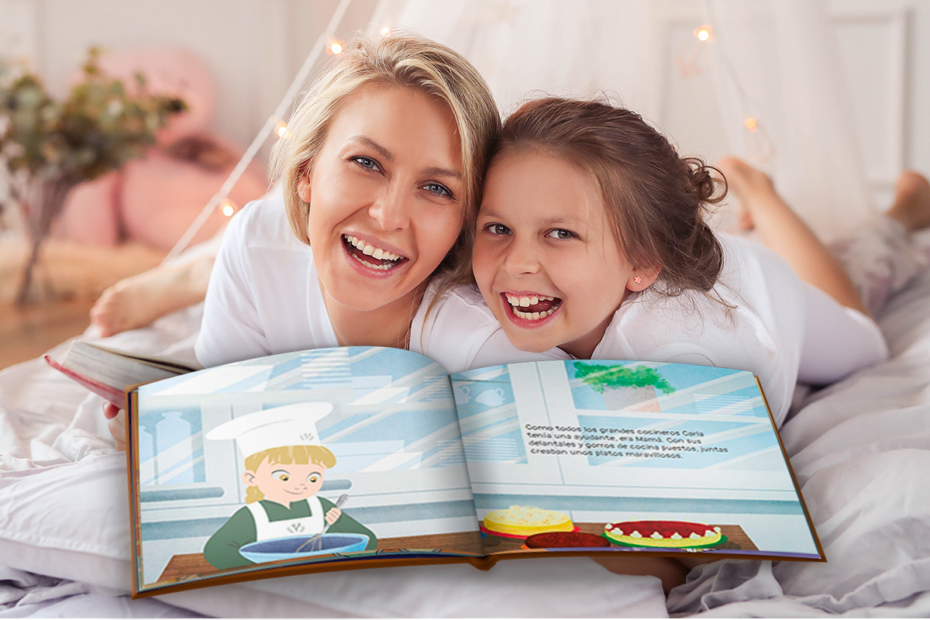Some might not initially think of reading as a go-to activity for our very little ones – not until they are capable of understanding more, at least, or are able to speak. However, reading helps us to form bonds with our children from day one. At this stage it is not really about making children read, rather it is about spending time with them, which is beneficial to them in a number of ways, whatever their age. Reading books to babies in their first months strengthens our bond with them since they tend to be in our arms, listening to our voices, which is calming for them and makes them feel safe. From the onset, infants experience the desire to handle books, to throw them on the floor, and the pictures will grab their attention. Later, when your child is around one years old, they will start turning the pages and develop more of an interest in understanding the images. When they begin to speak, they will open the book unaided and tell the story to themselves, based on what they see in the illustrations. Books are a fantastic tool to help develop our children’s knowledge and expose them to the basics of their mother tongue before starting school. They learn that we start with the left page, then the right page, before turning it over and continuing in the same way in the same order. They also learn that we read from left to right. We advise teaching children to read before their first time in the classroom as they will come to associate it with enjoyable company and see it as an enjoyable activity. Adversely, at school, books will primarily be used for learning to read. Consequently, the child may end up associating books with school tasks and be less likely to appreciate their worth.
For the book to become a tool and a means of learning through play, you will need to repeat animal and vehicle names and colours several times for your child to be able to memorise them. To facilitate faster learning, relate vocabulary learned from books to objects found in everyday life. Question your child constantly and you will be teaching them in the process. Some pages will interest them more than others, so focus on these pages because by doing so children will be more attentive to what you are teaching them. Don’t be afraid to really get into character by changing your tone of voice and acting, imitating emotions from the story. To make children more focused on reading, get them to participate by asking them questions about the characters. Who is who? Or ask them to give you a short summary of what has happened. In addition, so that your child really identifies with the stories, you can change characters’ names to their names – and you can do that thanks to Materlu. You can even customise the physical appearance of the main character so that they look as much like your child as possible.
For older children, try taking breaks during reading time in order to share your impressions of the story or to let your children express their perception of the situation. You can also invite them to guess what the book is about by looking at the cover before starting the book or invite them to propose an alternative ending once the story has ended. To deepen your child’s knowledge of language and spelling, follow the text with your finger and stop at some words or certain letters to help teach them a new word, checking their knowledge of the alphabet and matching letters to words – “B for butterfly”, for example.
In most countries, reading is usually taught at around the age of 6. Making sure that your child knows how to read before reaching this age is not the goal you are trying to achieve. Nevertheless, if they are curious about books, it would be a shame not to entertain their interest. By doing this, they will have a solid foundation before learning to read at school, which gives them an advantage and potentially allows them more time to concentrate on writing or mathematics, for instance. Every child is different, and it is therefore essential to let them go at their own pace and not to pressure them. As a result, we wholeheartedly advise inviting those who want to continue their discovery to read, and gently encouraging those for whom it is not yet a particularly enjoyable activity.
To conclude, books are invaluable resources that should feature in every child’s home. Books allow children to accelerate their learning, work on their relationship with language, and strengthen what they have practised in school, as well as family ties. Choosing colourful books encourages the development of their imaginations and helps them to focus on images. That said, as with video games, reading is only effective when the book has been carefully selected and is appropriate to the child’s age. Thanks to Materlu, you cannot go wrong since the recommended age is indicated, a summary of the story is provided, and you can even see the book in its digital format before purchasing it so that you can be certain that your child will enjoy it.
